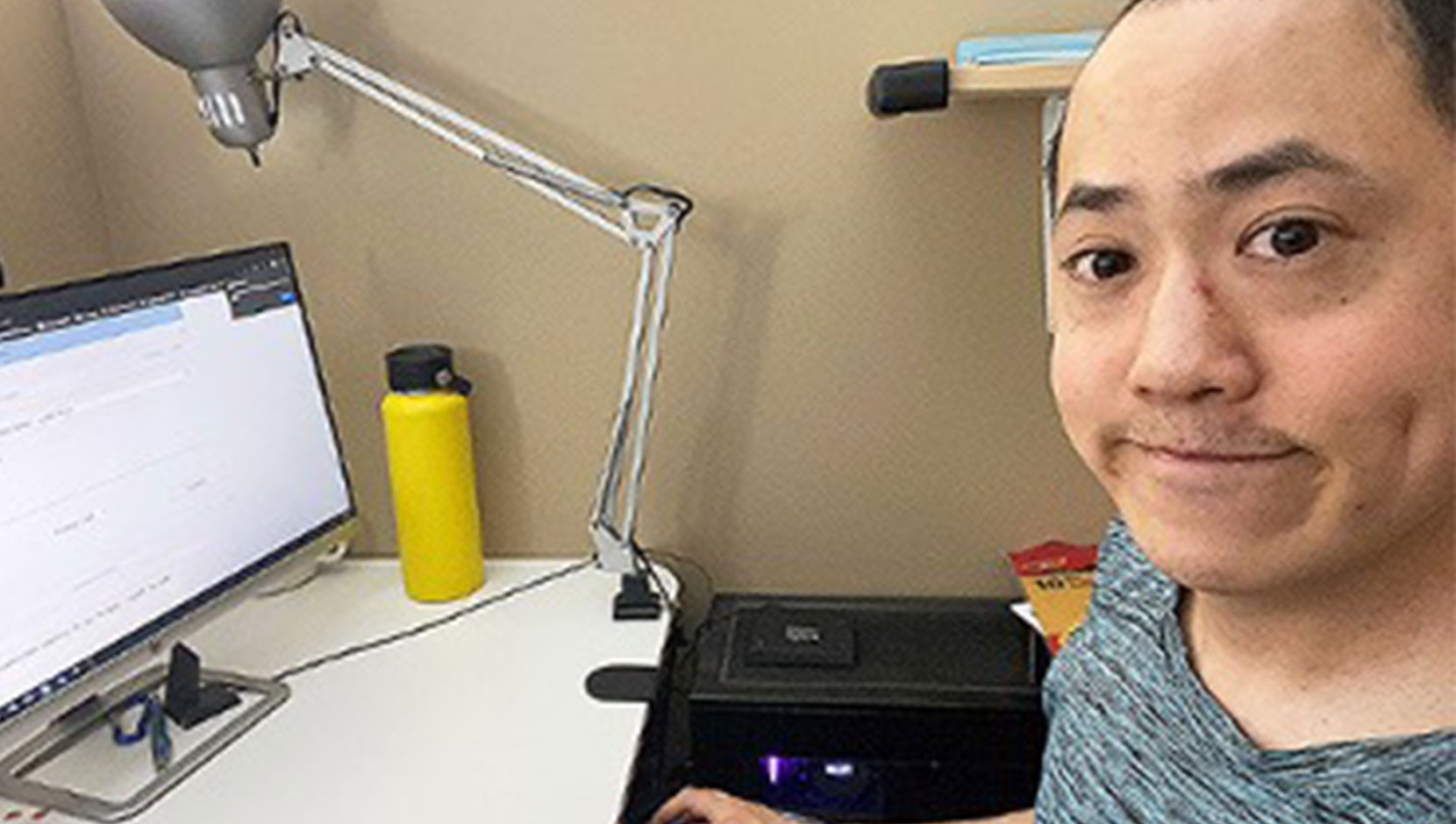How an Autism Diagnosis Led Me to ICBC


In recognition of World Autism Month 2021, ICBC Claims Support Assistant Calvin Ng shared his personal experience as an employee with autism on the company’s intranet, and what it’s like to be part of a corporate culture that celebrates diversity, equity, and inclusion.
The road to an autism diagnosis started long before I even knew what it was. The signs were there, but it never dawned on me that I might have it.
As a child, I had always noticed my behaviour warranted correcting more so than my siblings and peers—small talk was never small with me, my socializing behaviours were different enough to make my peers uncomfortable, and as a worker, I was a stickler for rules and precision, far beyond what was expected of me.
When I was finally diagnosed at age 28, certain experiences in my life began to make sense. Having an official diagnosis also opened more resources for me. I discovered the Pacific Autism Family Network—a local organization catered to helping those with disabilities, including those on the autism spectrum. It was through my discussions with them that connected me to BC Partners in Workforce Innovation (BC WiN), another organization whose goal is, in part, to connect interested employers to individuals with disabilities who are eager to bring their unique skillsets to the workplace—with ICBC being one of them.
A couple of the ways that autism manifests itself in my work life include an extraordinary attention to detail, finding comfort in repetition and routine, the need to know how my role fits in a ‘big-picture’/holistic manner, and an aversion for roles that require thinking on the spot. No two people with autism are alike. What strengths or weaknesses I may have, might be different from someone else with autism.
An introductory interview with BC WiN, along with the written diagnosis from my psychologist, provided clarity to what kind of jobs were suitable for me.
In 2018, they sent me job profiles for a couple positions at ICBC and indicated that I would be a good candidate for the roles in question. It was my first experience going through the job-seeking process under the context of being on the autism spectrum.
“When I joined ICBC, I felt it was important to me that my new team knew about my invisible disability. I conveyed to my new manager and team, where and when it was appropriate, how autism manifested in my day-to-day life.”
I will forever be indebted to how accommodating my manager at that time was about any difficulty or challenge I had with my tasks. She consistently went over and beyond to ensure that I was ready and able to accept each responsibility that came with my new role.
When I excelled, she gave me more responsibilities; when I ran into challenges, she dialed it back. In return, I promised her that I would be open and honest about where I felt I was in the progression of my learning of the role. It was the most refreshing ‘new employee’ experience I’ve had.
Tasks aside, she was also a mentor to me and helped guide me through everything else that came with the job, particularly the social aspects of it – something I had always found difficulty with. She really made me feel part of the team.
The same experience I had with the manager in my first role continued seamlessly with the manager of my current role. She shared the same qualities of empathy, compassion, understanding, and attentiveness to the difficulties I had on any given day.
Where the two managers had difficulty understanding my perspective or reaction to any given situation, they sought advice on how to contextualize my response/actions within each situation. I am thoroughly appreciative of that.
If you asked me how one could be the best ally to those on the autism spectrum (and others with visible or invisible disabilities), it would be to approach every situation and interaction with the utmost empathy and willingness to understand. Humble yourself that you may not know what challenges the other person faces.
“In every other role I held pre-diagnosis, where work performance standards were black or white and immovable, I was seen as an unproductive, inefficient worker compared to my peers.”
Over the last three years, the managers and colleagues I’ve worked with at ICBC have been incredibly patient and kind. I’m proud to be part of an inclusive organization where I feel supported, respected, and valued as an employee.
